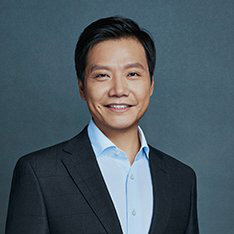China's Richest Man Leads Philanthropic Revolution
While the philanthropic activities of North American billionaires such as Bill Gates, Warren Buffett, and Mexico's Carlos Slim are turning private wealth into a force for social progress, philanthropy remains a radical concept in China, the Wall Street Journal reports. But in a nation where the Communist party has not always been well disposed to privately funded institutions and Confucian beliefs encourage charitable gifts to be made quietly, multibillionaire Li Ka-shing is determined to shake things up.
Asia's richest man and chairman of Hong Kong conglomerate Hutchison Whampoa Ltd., Li announced plans last year to give a third of his fortune — estimated to be more than $30 billion — to his foundations, which fund philanthropic projects around the world. The move will give the Li Ka-shing Foundation an endowment that rivals that of the Ford Foundation, the second-largest U.S. philanthropy after the Bill & Melinda Gates Foundation.
Already, dozens of high-profile Chinese entrepreneurs are following his lead. Yang Lan, a prominent talk-show host, has donated an estimated $72 million to set up a foundation that will work to promote cultural exchanges, environmental protection, and education reform, according to the Hurun Report, which tracks philanthropy in China. Similarly, Yu Pengnian, the head of the Shenzhen Pengnian Hotels empire, has donated close to $270 million — roughly 80 percent of his net worth — to healthcare causes, including cataract operations for thousands in rural China, while Niu Gensheng, CEO of Mengniu Dairy Group, has donated all his shares in one of China's largest milk companies — valued at nearly $600 million — to a foundation devoted to agriculture, education, and medical endeavors.
For its part, the Chinese government, which is concerned about growing wealth disparities in the country, has become more open to private philanthropy. While the average wage in the world's most populous nation is less than $200 a month, some 500,000 Chinese have a net worth exceeding $1 million, and the country is home to more than a hundred billionaires. Yet many factors are working against private giving in China, including the traditional view that family money should remain within the family. In addition, the government does not require charities to disclose information about their activities, which can create suspicion among the public. And Beijing still requires that all donations be funneled through the government.
Although the development of a more transparent charitable culture presents a challenge for China, Li has embraced the concept. "In the U.S., philanthropic support from entrepreneurs is tightly integrated into the fabric of society, whether it's health care, medical research, or education," he said during a rare interview about his philanthropic work. "Now, slowly, China will know this."







